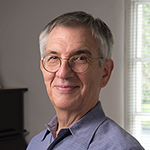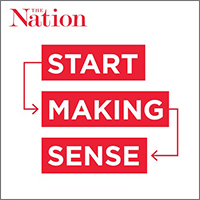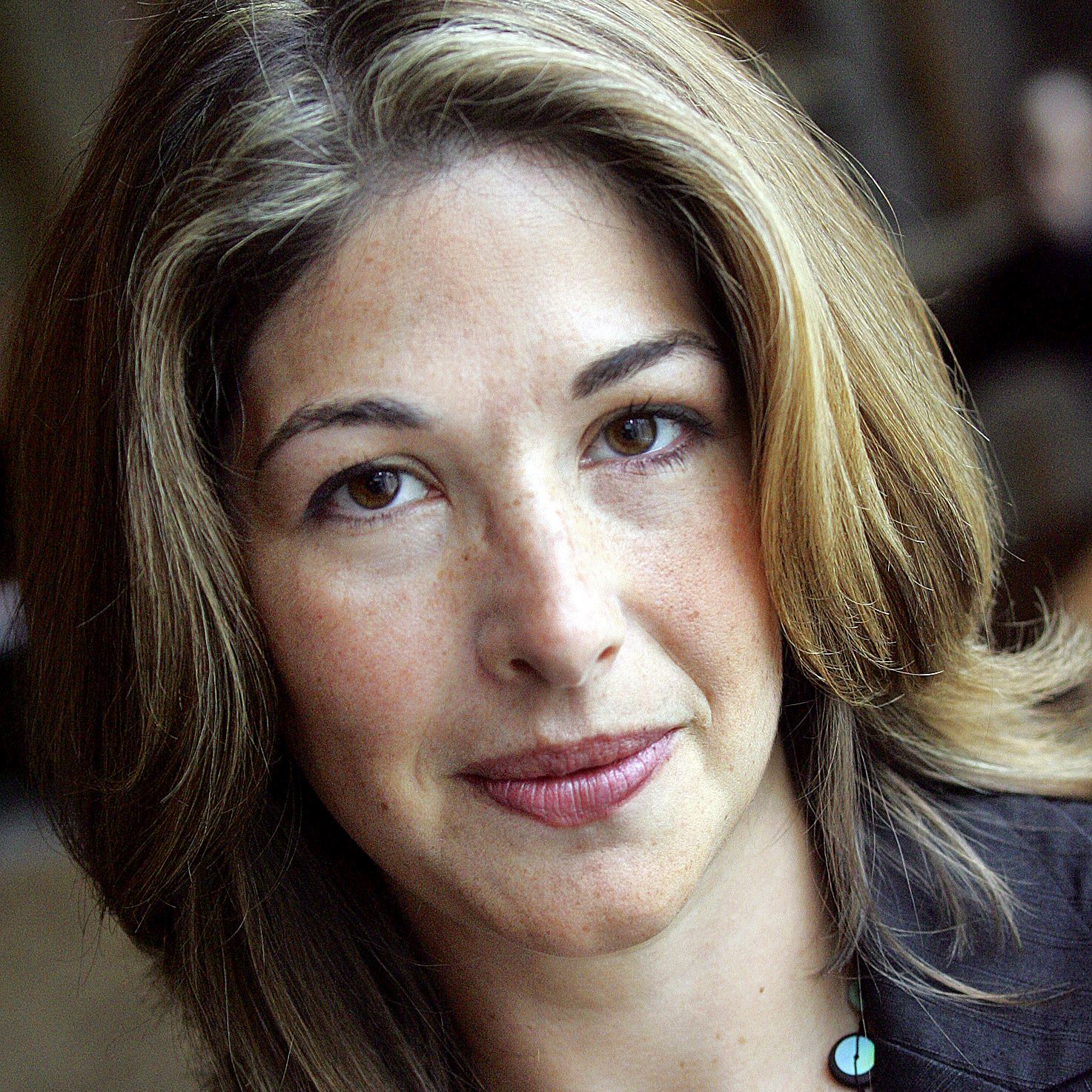
Listen HERE
Naomi Klein argues that the problem with Hillary’s climate policy isn’t her corporate cash; it’s her corporate ideology. The climate justice movement, she says, “requires the kind of boldness Bernie Sanders represents.”
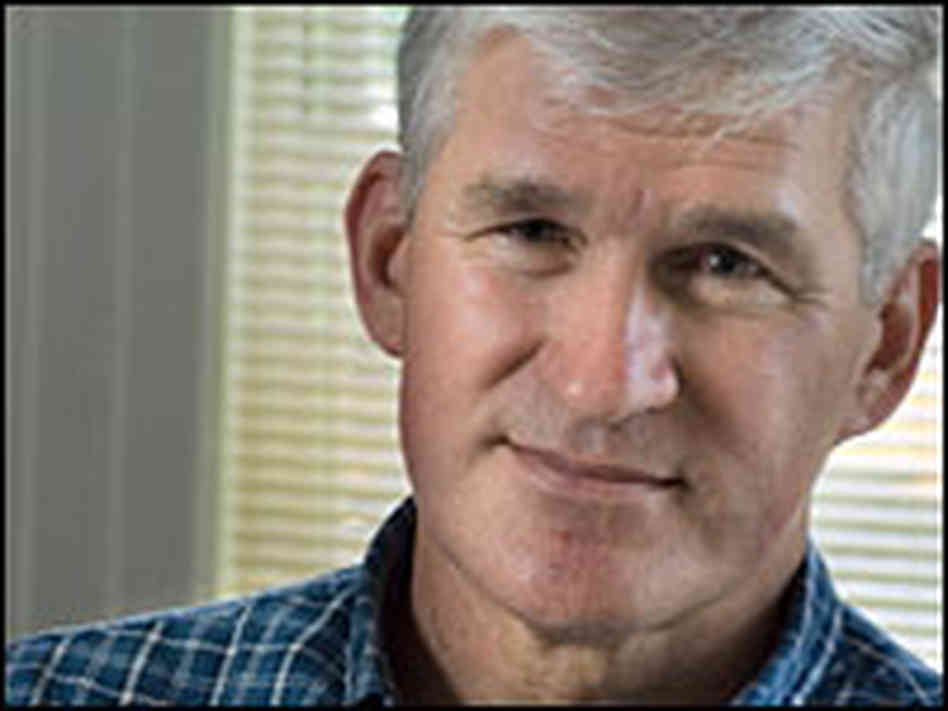 Also: military historian Andrew Bacevich says America can never win its twenty-year war for the Middle East.
Also: military historian Andrew Bacevich says America can never win its twenty-year war for the Middle East.
 Plus: Amy Goodman talks about how she got arrested at the Republican National Convention in St. Paul in 2008 — and other highlights from the 20-year history of ‘Democracy Now.’
Plus: Amy Goodman talks about how she got arrested at the Republican National Convention in St. Paul in 2008 — and other highlights from the 20-year history of ‘Democracy Now.’
 Listen HERE
Listen HERE Also: Viet Nguyen talks about “The Sympathizer,” the best political novel I’ve read in a long time. It opens in Saigon on the last day of the Vietnam war and follows a nameless spy who has infiltrated the South Vietnamese army and then flees with its remnants to America. It’s out now in paperback.
Also: Viet Nguyen talks about “The Sympathizer,” the best political novel I’ve read in a long time. It opens in Saigon on the last day of the Vietnam war and follows a nameless spy who has infiltrated the South Vietnamese army and then flees with its remnants to America. It’s out now in paperback. Plus The Spanish Civil War: it was huge event in the rise of fascism and in the history of the American left. We’ll talk about it with Adam Hochschild – his new book is Spain in Our Hearts: Americans and the Spanish Civil War, 1936-1939. Adam and I will be in conversation at the LA Public Library ALOUD series tomorrow/Thurs night, 7pm; the library is at 5th & Flower Streets.
Plus The Spanish Civil War: it was huge event in the rise of fascism and in the history of the American left. We’ll talk about it with Adam Hochschild – his new book is Spain in Our Hearts: Americans and the Spanish Civil War, 1936-1939. Adam and I will be in conversation at the LA Public Library ALOUD series tomorrow/Thurs night, 7pm; the library is at 5th & Flower Streets. LISTEN to the iTunes podcast
LISTEN to the iTunes podcast 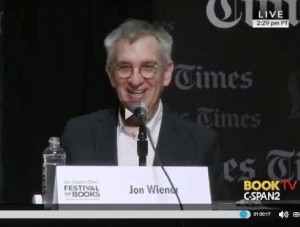
 Listen
Listen 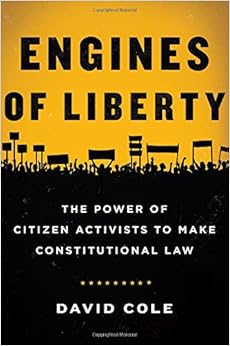 Also: David Cole argues that citizen activists are the real force behind changes in constitutional law – look at how the NRA changed the meaning of the Second Amendment; look at how the gay rights movement changed the meaning of “marriage.” His new book is Engines of Liberty.
Also: David Cole argues that citizen activists are the real force behind changes in constitutional law – look at how the NRA changed the meaning of the Second Amendment; look at how the gay rights movement changed the meaning of “marriage.” His new book is Engines of Liberty. Listen
Listen 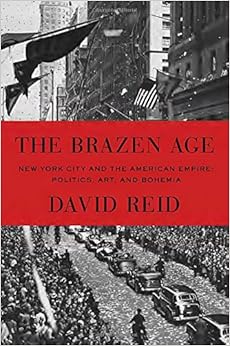 Plus: – politics in 1944! DAVID REID talks about the last hurrah of Franklin Delano Roosevelt and the glory days of the CIO Political Action Committee – his new book is The Brazen Age: New York City and the American Empire, Politics, Art and Bohemia.
Plus: – politics in 1944! DAVID REID talks about the last hurrah of Franklin Delano Roosevelt and the glory days of the CIO Political Action Committee – his new book is The Brazen Age: New York City and the American Empire, Politics, Art and Bohemia. Listen
Listen And, for opening day of major league baseball, our Dave Zirin talks about the game with Noam Chomsky—who recalls growing up with the hapless Philadelphia Athletics, and going to Little League games with his grandson today.
And, for opening day of major league baseball, our Dave Zirin talks about the game with Noam Chomsky—who recalls growing up with the hapless Philadelphia Athletics, and going to Little League games with his grandson today.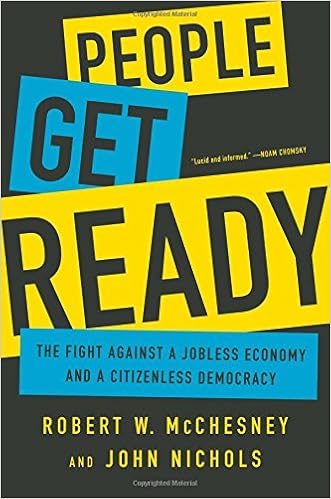
 Also: We return to the Rosenberg case: now we know that Julius was a spy, but didn’t give the Soviets the secret of the A-bomb; and we know that Ethel was framed. So it’s time to exonerate Ethel.
Also: We return to the Rosenberg case: now we know that Julius was a spy, but didn’t give the Soviets the secret of the A-bomb; and we know that Ethel was framed. So it’s time to exonerate Ethel.  Listen
Listen  Plus: Obama’s legacy for black America is mostly symbolic, Gary Younge argues—the wealth gap between black and white Americans has grown over the last eight years, along with black poverty. Gary writes for The Guardian and The Nation.
Plus: Obama’s legacy for black America is mostly symbolic, Gary Younge argues—the wealth gap between black and white Americans has grown over the last eight years, along with black poverty. Gary writes for The Guardian and The Nation. Also: the real politics of hope–and the uncertainty behind it, especially for the climate movement: Rebecca Solnit talks about wild hope, big dreams and high ideals and deep emotions, and a sense that everything can change suddenly.
Also: the real politics of hope–and the uncertainty behind it, especially for the climate movement: Rebecca Solnit talks about wild hope, big dreams and high ideals and deep emotions, and a sense that everything can change suddenly. Listen
Listen Also: An update on the L.A. River: Is it possible to beautify a city, without making it a playground for the elite? RICHARD KREITNER reports on the threat of gentrification of the riverbanks. He wrote about it this week for
Also: An update on the L.A. River: Is it possible to beautify a city, without making it a playground for the elite? RICHARD KREITNER reports on the threat of gentrification of the riverbanks. He wrote about it this week for 